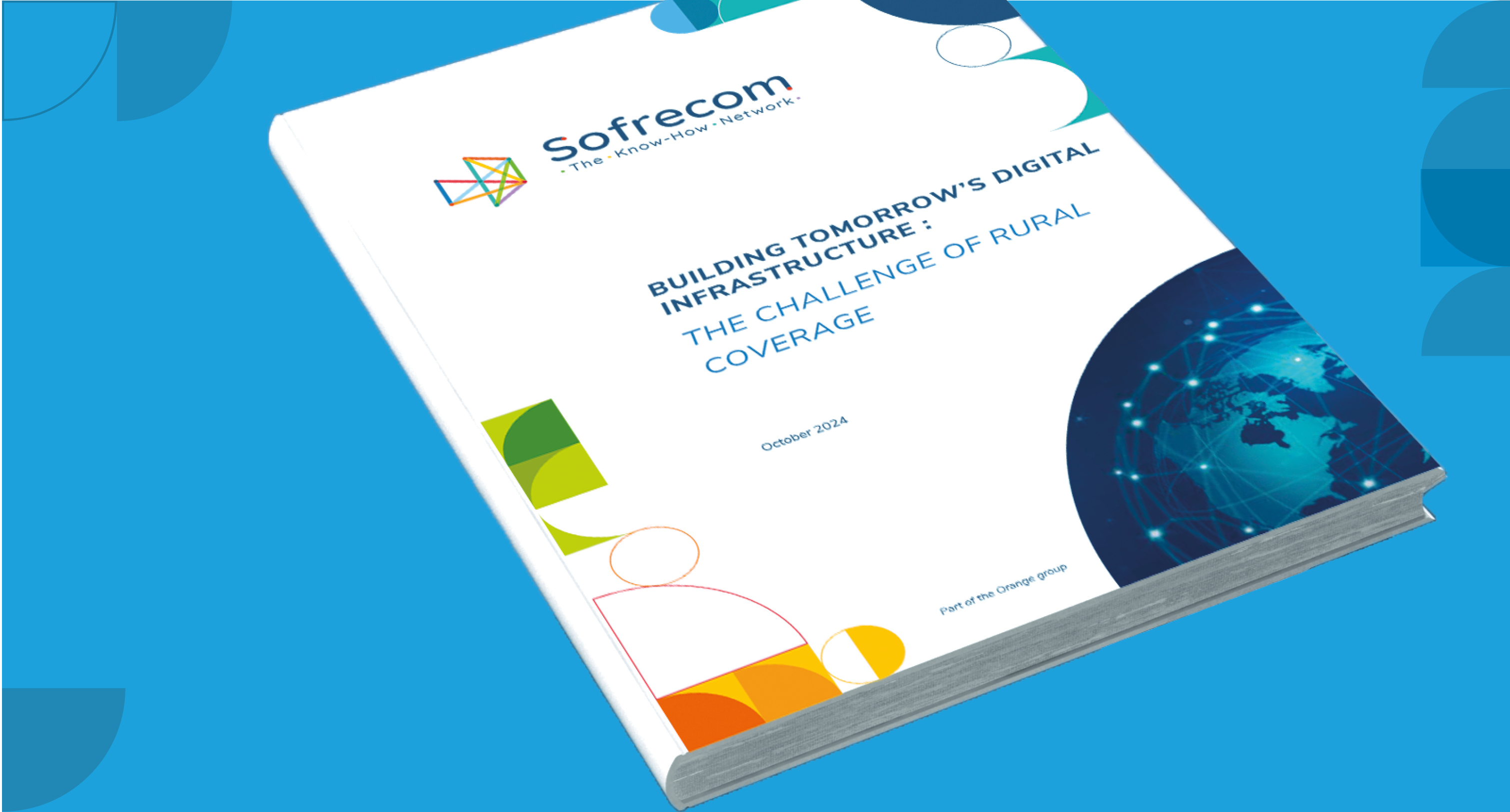
Guinea Conakry, with its geographical challenges and rapid growth, aims to become a regional hub for connectivity in West Africa. To achieve this, the country has launched the tailor-made deployment of optical fiber networks. This project illustrates how Sofrecom’s expertise contributes to this digital transformation by combining innovation, efficiency and local development.
The challenges of deploying fiber in Guinea
Guinea Conakry, with its population of more than 13 million and its rapidly changing economy, faces unique challenges in telecommunications. Between mountainous terrain, dense urban areas and isolated rural regions, the country requires a tailor-made approach to democratize access to very high speed.
This project is part of the national vision for infrastructure modernization, aiming to position Guinea as a regional digital hub in West Africa. The issue goes beyond simple connectivity: it is about creating the conditions for inclusive economic development, promoting the emergence of new sectors of activity and improving public services.
Identifying customer needs for customized fiber deployment
In response to the exponential demand for high-speed connectivity, our Guinean client has articulated clear strategic needs:
- Maximize territorial coverage: Effectively connect urban areas of Conakry while preparing for expansion into peripheral regions, taking into account local geographical specificities.
- Optimize investment: Deploy innovative technical solutions that reduce infrastructure costs by 25 to 30%, while maintaining international quality of service.
- Ensure network resilience: Design an infrastructure capable of withstanding tropical climatic conditions and the region's specific geological constraints.
- Accelerate time-to-market: Shorten deployment timelines through optimized planning and effective coordination of field teams.
- Develop local expertise: Train and support Guinean technicians to ensure operational autonomy and preventive maintenance of the network.
- Adhere to international standards: Guarantee compliance with international norms for optimal interoperability with regional networks.
Our methodology: operational excellence serving innovation
With over 50 years of expertise in telecommunications, Sofrecom has developed a structured methodology based on an integrated and progressive approach. It covers all key stages of deployment, from design to supervision, including planning and execution. The main phases of this approach are as follows:
- Define engineering standards: Organize workshops to establish technical standards, geomarketing, and digitize cartographic data, ensuring a solid foundation for the project.
- Collect and analyze field data: Use artificial intelligence tools to map each building, then manually validate this data to ensure accuracy.
- Design the network: Develop a detailed design based on the collected data, while verifying feasibility on-site.
- Supervise construction: Set up field teams, define technical specifications, coach local teams, and monitor progress remotely using innovative tools.
- Produce as-built documentation: Create the final network documentation to ensure efficient management and facilitate maintenance.
- Continuous monitoring and control: Deploy a field data collection tool to track progress, validate KPIs, and proactively manage risks.
This approach guarantees full control of the project, ensuring quality, adherence to costs and deadlines, while facilitating communication among all stakeholders.
Results from the fiber deployment in Guinea
Sofrecom's intervention in this project has enabled the achievement of concrete and measurable results, while ensuring optimal management at each stage. Among the main benefits are:
- Precise and tailored planning: Thanks to a rigorous methodology, deployment was optimized to maximize coverage of households within a reduced timeframe.
- Significant cost reduction: By favoring aerial solutions and reusing existing infrastructure, the project achieved savings of up to 30% on equipment costs.
- Certified network quality: Systematic controls and compliance with ISO 9001 standards guaranteed the reliability and durability of the network.
- Proactive risk management: Anticipation of logistical obstacles and strengthened local coordination helped avoid delays and cost overruns.
- Effective skills transfer: Training of local teams enabled them to ensure maintenance and future development of the network.
- Fluid and transparent communication: Regular exchanges and remote monitoring tools facilitated quick problem resolution and informed decision-making.
This pioneering project demonstrates how Sofrecom's expertise can transform digital ambitions into operational realities, laying the foundations for a connected and competitive Guinea on the international stage.




